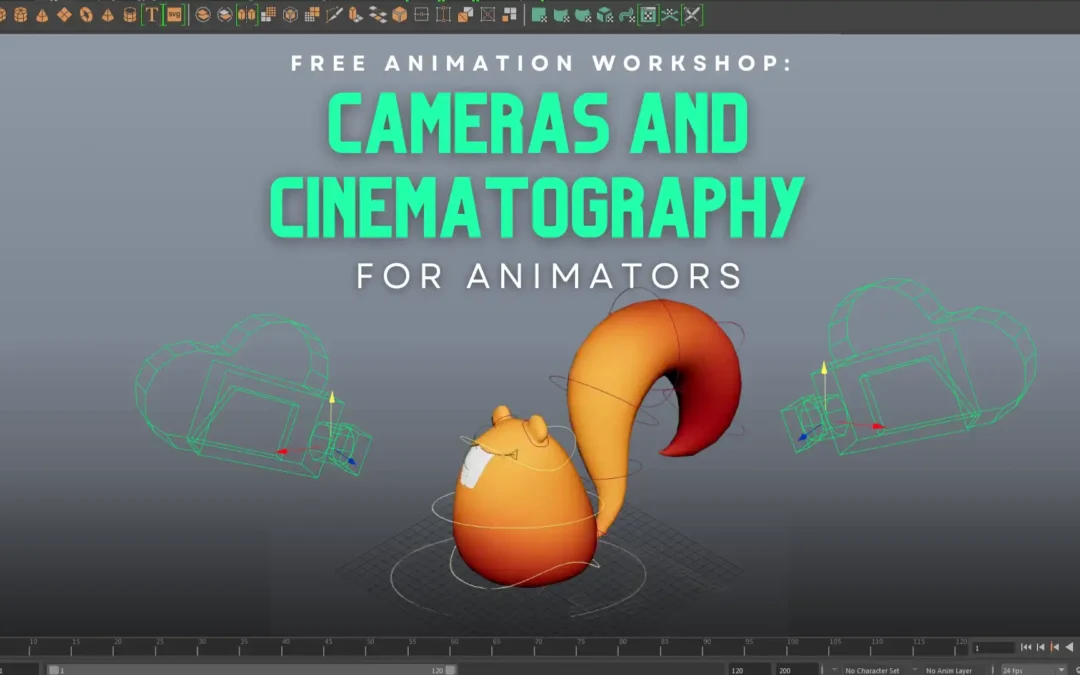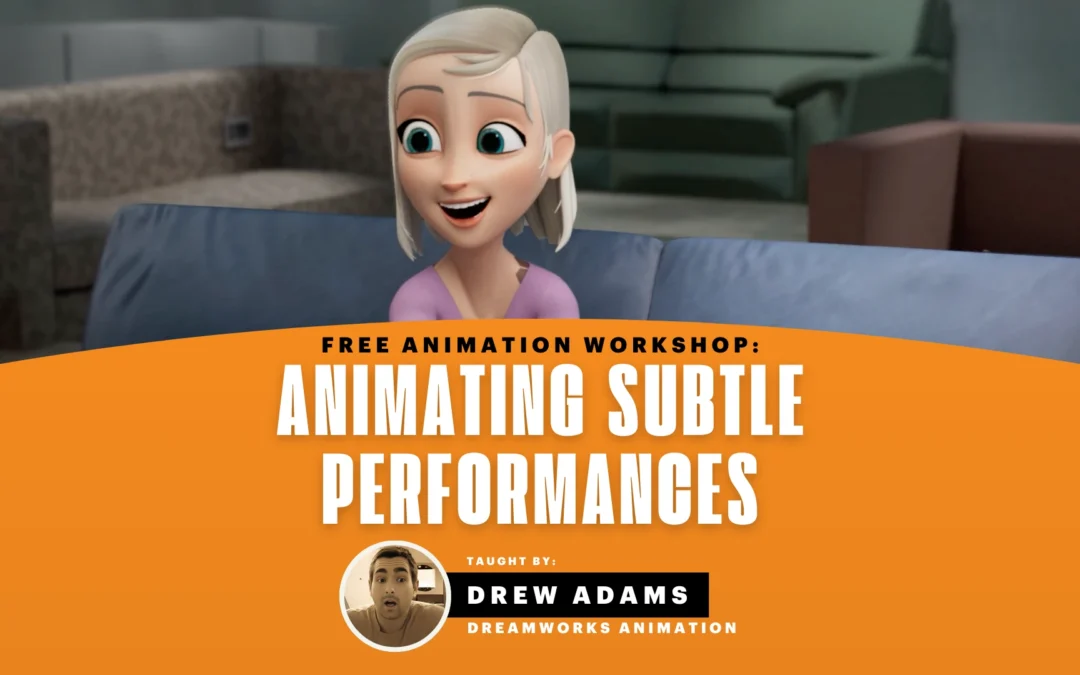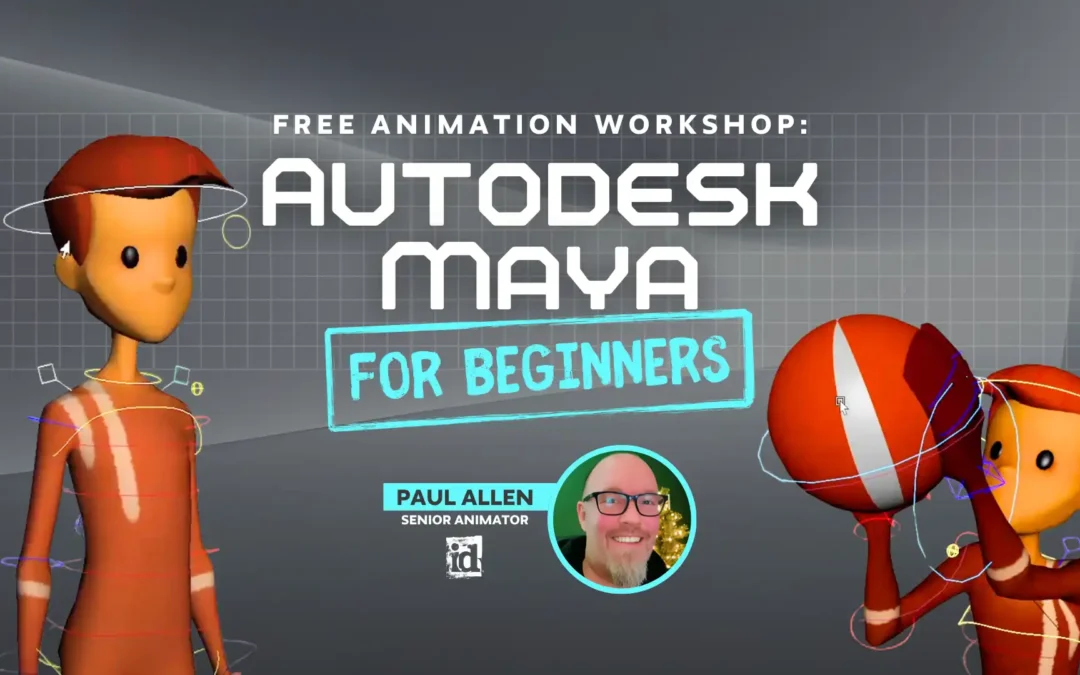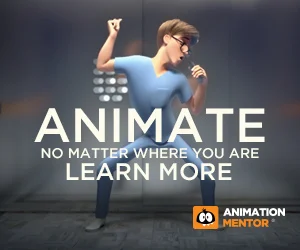
So you’re about to start an animation job at a new studio? That’s awesome! Congratulations. What’s that, you say? You’re worried about performing as an animator? Just relax, the animation part of the job is the least of your worries. You’ve gotten good training here at AM, and the studio is going to give you some leeway early on. No one expects you to be Bill Tytla right away. But you’re right to be a little apprehensive about starting a new animation job. There are some pitfalls to watch out for. While the animation part of the job should take care of itself with hard work, there’s more to succeeding at a new studio than getting your shots approved.
Here are some things NOT to do as a new animator:
Don’t talk.
In general, keep your mouth shut when you’re dealing with the studio hierarchy or even with senior animators. Seriously, no one wants to hear your opinions in meetings, and no one wants your critiques. And especially never interrupt or defend yourself when you’re getting notes. Directors do not care what your intentions were, or what you did but changed before they saw it, or what you were going to do if you had more time, or what your mother thought of your shot. They honestly do not care, and you only sound defensive when you try to explain your work. Remember, you will never talk someone into being impressed by your animation. So, keep your mouth shut in general, especially when you’re getting feedback and notes.Never interrupt or defend yourself when you’re getting notes.Author’s Note: I was intentionally blunt in making this list — I took what could be nuanced points and painted them as black and white. I did this because I’ve seen many a new animator come into a studio with so much excitement that they’re like bulls in a china shop, committing inadvertent faux pas and stomping on sensitive toes in their enthusiasm. Sadly, in a studio situation, people will rarely cut you much slack for being naive or overzealous. In particular, the “don’t talk” rule has startled some people. I thought it might, and I’m glad if it gets people thinking. Yes, AM encourages peer-to-peer critiques. Yes, in a school situation like AM, we want to hear your thoughts, ideas, and opinions. Yes, animation is collaborative. And yes, as a new animator you need to communicate with others.

Mike and Sully in Monsters University (Pixar)

Po trains with Master Shifu in Kung Fu Panda (DreamWorks)
Let your work speak for you.And if you have any questions about any of the other points, put them in the comments and I’ll try to respond to them there.
Don’t rush your work.
You will get pressure to work faster. Everyone does. But at the end of the project (when decisions are being made about staffing for the next project), the quality of your shots is what will be remembered. Within reason, never sacrifice quality for quantity.Within reason, never sacrifice quality for quantity.If you can’t yet be “fast and good,” then don’t settle for “fast and mediocre.” It’s better to be “slow but good,” and to progressively improve your workflow and speed.
Don’t complain. Don’t be negative.
In your private conversations, don’t badmouth coworkers or studio life in general. Animators can be a catty bunch, and some are world-class complainers. Don’t fall into the trap of gossiping, judging, whining, and moaning. As a new animator, your job is precarious enough — you don’t need to make enemies, and you definitely don’t want to be seen as negative.
Marlin and Dory in Finding Nemo (Pixar)
Don’t lobby for good shots.
You’re the new kid, no matter your age and skill level. You may have the idea that you deserve juicy shots, not the background walk cycles you keep getting stuck with. You may hear about others badgering the lead or the director for good shots, sometimes successfully. Don’t do it yourself.You may hear about others badgering the lead or the director for good shots, sometimes successfully. Don’t do it yourself.They will give you better shots when you’re ready, and you’re probably not ready. That are few things as annoying for a lead animator than juniors whining about that shots you’re assigning them. And remember, there are no small shots, only small animators.
Don’t hang out on the internet.
When I see an animator with multiple chat windows open, and a podcast playing, and funny gifs cycling, and a news feed going, I know I’m looking at someone who is working to about 20% of their potential. Sometimes I don’t see it, but I hear it — the constant clatter of keyboards as people are typing out chat messages going back and forth.
A scene with Iron Man from the Avengers (Marvel)
Don’t take critiques personally.
We pour our heart and souls into our work, but we are not our work. When someone critiques your work, they’re not judging you personally. An honest, no-holds-barred critique is a precious gift. Treat it as such.When someone critiques your work, they’re not judging you personally. An honest, no-holds-barred critique is a precious gift.Try to never be defensive. The proper response to a blunt critique is “Thank you, may I have another.” Be open during critiques or you will stagnate as an animator.
Don’t work unpaid hours to get ahead.
You’re a professional now, which means you should be paid for your work. If everyone is crunching, then of course you do it. But don’t be that new kid who works late into the night, and comes in on weekends, so you can get yourself noticed by the boss. Other junior animators will see just what you’re doing — you’re trying to make yourself look better at their expense. They will resent you for it, as they should. And all you signal to the vets is that you don’t know how to get your work done. This is not a pathway to being respected.Don’t butt in.
Don’t try to rush connecting socially at the studio. It can be lonely lonely at first, being a new animator. It can be frustrating seeing people around you who seem to have so much in common with you, who play the same games, like the same movies and comics, who love animation just like you.
Officer Judy Hopps in Zootopia (Disney)
Don’t isolate yourself.
This is not a contradiction to the note above. Don’t form a bubble of solitude around yourself. Seek out feedback about your work, in a respectful way. Be friendly and open socially. And if you find yourself struggling, with an animation problem, or with a technical problem, reach out sooner rather than later. Ask for help if you need it, before it becomes a festering problem.Don’t show your work ‘cold’ to the director.
Cultivate some coworkers who are willing to give you good, honest critiques, and listen to them. Try to only show your work to the director, or in dailies, after you’ve addressed this private feedback. I can promise you most of the best animators in the studio are doing this, and have been for years. That’s part of why they’re among the best.Cultivate some coworkers who are willing to give you good, honest critiques, and listen to them.Remember, none of us are as good at judging our own animation as our peers are. Never forget this fact, and always get two or three extra sets of eyes on your shots. (And remember this when you’re updating your demo reel!)

Peter B. Parker is a mentor for Miles Morales’s Spider-Man (Sony)
Don’t assume no one knows who you are.
It might feel like no one cares about you, and that you’re unnoticed in general. In fact, lots of people are paying much more attention to you than you think. And they’re forming opinions. And those early impressions will stick. So do yourself a favor and be an upbeat, high energy, hard-working team player. Imagine you’re being noticed all the time, and behave accordingly.Don’t be a jerk to PAs or production staff, ever.
Realize that some of those people who are at the bottom of the production staff hierarchy now will one day be producers, with the power to hire and fire you. And they have long memories.
Rapunzel befriends a group of pub ruffians in Tangled (Disney)




